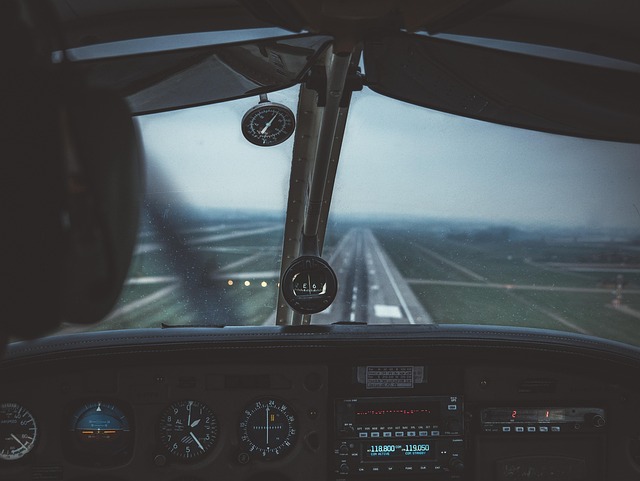Pilot Training in the United Kingdom — Clear Steps for Aspiring Professional Aviators
Becoming a professional pilot in the United Kingdom requires dedication, rigorous training, and a clear understanding of the path ahead. The UK offers a variety of pilot training programs designed to equip aspiring aviators with the skills and qualifications necessary for a successful career in aviation. This article outlines the essential steps and considerations for those looking to embark on their journey towards becoming a professional pilot in the UK.

What types of pilot training programs are available in the UK?
The United Kingdom provides several pathways for individuals seeking to become professional pilots. The most common types of pilot training programs include:
-
Integrated ATPL (Airline Transport Pilot License) Course: This intensive, full-time program combines theoretical knowledge with practical flight training, typically lasting 14-18 months. It is designed for those with little to no prior flying experience and aims to prepare candidates for a career as a commercial airline pilot.
-
Modular ATPL Course: This flexible option allows students to complete their training in stages, often while working or managing other commitments. It includes separate modules for Private Pilot License (PPL), Commercial Pilot License (CPL), Instrument Rating (IR), and ATPL theory.
-
Multi-Crew Pilot License (MPL): This relatively new program focuses on training pilots specifically for multi-crew airline operations. It emphasizes simulator-based training and Crew Resource Management (CRM) skills.
-
Military Pilot Training: The Royal Air Force (RAF) offers pilot training programs for those interested in a military aviation career. These programs provide a unique pathway to becoming a professional pilot with potential opportunities to transition to civilian aviation later.
How does professional pilot training work in the UK?
Professional pilot training in the UK is a structured process that combines theoretical knowledge with practical flight experience. The journey typically involves the following stages:
-
Ground School: Students undergo intensive theoretical training covering subjects such as aerodynamics, navigation, meteorology, and aviation law.
-
Flight Training: Practical flying lessons begin with basic maneuvers and progress to more advanced techniques, including instrument flying and multi-engine operations.
-
Simulator Training: Modern flight simulators are used to practice emergency procedures and enhance decision-making skills in various scenarios.
-
Examinations: Throughout the training, students must pass a series of theoretical exams and practical flight tests to demonstrate their competence.
-
Building Flight Hours: Accumulating the required flight hours is crucial for obtaining various licenses and ratings.
-
Type Rating: After obtaining a CPL, pilots typically undergo specific training for the aircraft type they will operate professionally.
What are the options for pilot training for adults in the UK?
Pilot training for adults in the UK is accessible through various programs catering to different schedules and prior commitments:
-
Full-time Integrated Courses: Ideal for adults who can dedicate 14-18 months to intensive training, often suitable for career changers or those taking a sabbatical.
-
Part-time Modular Courses: Perfect for adults balancing work or family responsibilities, allowing them to complete training modules at their own pace.
-
Weekend and Evening Programs: Some flight schools offer flexible schedules for ground school and flight training outside of typical working hours.
-
Distance Learning Options: Certain theoretical components can be studied remotely, making it easier for adults to manage their time effectively.
-
Accelerated Courses: Some schools offer condensed programs for adults with prior aviation experience or those able to commit to an intensive learning schedule.
What are the prerequisites for enrolling in pilot training programs?
Before embarking on professional pilot training in the UK, aspiring aviators must meet several prerequisites:
-
Age: Candidates must be at least 18 years old to obtain a CPL, although some training can begin earlier.
-
Education: A minimum of 5 GCSEs (or equivalent) at grade C/4 or above, including English and Mathematics, is typically required.
-
Medical Fitness: Passing a Class 1 Medical examination is mandatory for professional pilot licenses.
-
Language Proficiency: Demonstrating English language proficiency is essential, as it is the international language of aviation.
-
Background Check: A clean criminal record is necessary for security clearance in the aviation industry.
-
Financial Preparation: Pilot training can be costly, so candidates should have a clear financial plan or explore funding options.
How much does pilot training cost in the UK?
Pilot training in the UK represents a significant investment, with costs varying depending on the type of program and training provider. Below is a comparison of estimated costs for different training pathways:
| Training Program | Provider | Cost Estimation |
|---|---|---|
| Integrated ATPL | L3Harris Airline Academy | £86,000 - £98,000 |
| Modular ATPL | Booker Aviation | £60,000 - £70,000 |
| MPL | CAE | £100,000 - £120,000 |
| RAF Pilot Training | Royal Air Force | Funded by the military |
Prices, rates, or cost estimates mentioned in this article are based on the latest available information but may change over time. Independent research is advised before making financial decisions.
It’s important to note that these costs typically cover tuition, flight hours, and examinations. Additional expenses such as accommodation, living costs, and study materials should also be factored into the overall budget.
What career prospects are available after completing pilot training?
Upon successful completion of pilot training in the UK, graduates can pursue various career paths within the aviation industry:
-
Commercial Airline Pilot: Flying passengers or cargo for scheduled airlines or charter companies.
-
Corporate Jet Pilot: Operating private jets for business executives or high-net-worth individuals.
-
Flight Instructor: Teaching new pilots and helping them develop their skills.
-
Air Ambulance Pilot: Providing critical medical transport services.
-
Search and Rescue Pilot: Conducting rescue operations in challenging conditions.
-
Test Pilot: Evaluating new aircraft designs and modifications.
-
Aerial Survey Pilot: Conducting mapping and surveillance operations for various industries.
The aviation industry offers diverse opportunities for qualified pilots, with career progression often leading to roles such as Captain, Chief Pilot, or management positions within airlines and aviation organizations.
Embarking on a pilot training program in the United Kingdom is a significant decision that requires careful consideration of the various options available. By understanding the types of programs, prerequisites, costs, and potential career paths, aspiring aviators can make informed choices about their professional future in the exciting world of aviation.




